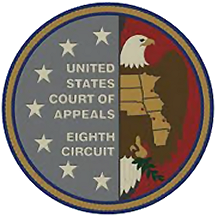Advertisement
|
Court Backs FCC on Radio Rules in Ownership Case
| RADIO ONLINE | Wednesday, July 23, 2025 | 12:53pm CT |





|
 |
In a major decision impacting the future of media ownership, the U.S. Court of Appeals for the Eighth Circuit has upheld the Federal Communications Commission's local radio ownership rules while partially striking down key limits on television ownership. The ruling, issued July 23, preserves long-standing caps on the number of AM and FM stations a company may own in a single market -- a disappointment for radio broadcasters who argued the rules are out of sync with today's audio landscape.
A group of radio companies -- including Beasley Media Group, Connoisseur Media, Midwest Communications, and others -- had petitioned the court to overturn the FCC's 2023 decision to retain local radio ownership limits without change. They argued that the Commission failed to account for a decade-long decline in broadcast radio revenue and rising competition from digital audio platforms like Spotify, Apple Music, and YouTube Music.
But the court deferred to the FCC's judgment, concluding that the agency acted within its authority when it chose to define the relevant market as broadcast radio only -- excluding streaming and satellite audio. In a 41-page opinion, Judge Bobby Shepherd wrote, "The FCC considered the growing prevalence of non-broadcast programming and articulated a rational reason for declining to broaden its market definition."
The court also upheld the FCC's use of "subcaps," which limit the number of AM or FM stations a licensee can own in a given market. The FCC had previously warned that relaxing those limits could hasten the decline of the AM band and lead to excessive consolidation in FM. The judges agreed, noting these were "predictive judgments to which judicial deference is especially important."
The National Association of Broadcasters (NAB), which led the challenge along with a coalition of station groups, called the court's radio ruling a missed opportunity. "We are disappointed that the court stopped short of addressing the decades-old radio ownership restrictions that defy economic reality and weaken broadcasters' ability to compete, invest in local journalism and serve their communities," said NAB President and CEO Curtis LeGeyt.
However, the Eighth Circuit handed broadcasters a significant win on the television side, vacating the FCC's "Top-Four Prohibition" -- a rule that barred common ownership of more than one top-rated full-power TV station in the same market. The court found the Commission failed to justify the rule with current evidence and relied too heavily on outdated studies and assumptions.
The Top-Four Prohibition has long been used to prevent consolidation among major network affiliates -- typically ABC, CBS, NBC, and FOX. The FCC retained and tightened the rule in its 2023 order, arguing that it promoted competition and viewpoint diversity. But the appeals court said the agency's rationale was unsupported by the record.
"The FCC's justifications for the Top-Four Prohibition run counter to the evidence before the agency," the court wrote, citing broadcaster-submitted data showing that in many markets, the top station's viewership far exceeds the combined total of the second, third, and fourth stations. The court also rejected the FCC's claims that top-four combinations harm local news output or network competition, calling its assertions "conclusory."
In a further setback for the Commission, the court vacated a revision to "Note 11," a provision that had barred broadcasters from using multicast channels or low-power stations to obtain second network affiliations. The FCC said that update was necessary to close loopholes, but the court found the change was unsupported and could stifle innovation -- particularly in smaller or rural markets.
The court's decision gives the FCC 90 days to respond before the Top-Four rule is formally vacated. The ruling is likely to accelerate ongoing discussions in the Commission's pending 2022 Quadrennial Review of media ownership regulations. FCC Chair Brendan Carr, who dissented from the 2023 order, has expressed support for easing ownership restrictions and may now have both legal and procedural momentum to act.
The NAB and station owners will likely use the court's rebuke as leverage in advocating for broader deregulation. "This is a major step forward for local television broadcasters seeking to compete and thrive in a vastly transformed media marketplace," said LeGeyt. "We look forward to working with this FCC to modernize its local radio ownership rules as well."
FCC Chairman Carr said, "For decades, the FCC's approach to regulating the broadcast industry has failed to promote the public interest. That has only made it harder for trusted and local sources of news and information to compete in today's media environment. And that is why I dissented from the Biden-era FCC's decision to retain a regulation that does not match marketplace realities. I am pleased to see that the court agrees and has vacated that regulation."
This is a developing story. Stay with RADIO ONLINE for updates as the FCC prepares its next move.
Advertisement
|
Latest Radio Stories
Jeff Liberman Exits Entravision After 25 Years
|
WGR Brand Expands to Rochester on 95.7 FM
|
Darius Bradford to Host FOXY 106.9 Mornings in St. Louis
|
Advertisement
|
Chairman Carr Announces Pledge America Campaign
|
Report: Podcasting Tops 53% Monthly Reach in U.S.
|
iHeartMedia Study Highlights Bicultural Latino Power
|

















